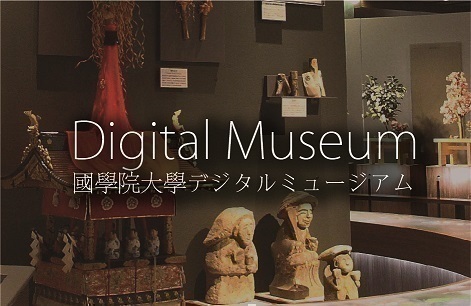- トップ
- Encyclopedia of Shinto
- Ōkuni Takamasa
Encyclopedia of Shinto
| Main Menu: | |
| Links: |
詳細表示 (Complete Article)
| カテゴリー1: | 8. Schools, Groups, and Personalities |
|---|---|
| カテゴリー2: | Personalities |
| Title | Ōkuni Takamasa |
| Text | (1792-1871) Scholar of National Learning (kokugaku) and advocate of a form of Japanese nativism called Honkyō hongaku in the late Edo and early Meiji periods. Eldest son of Imai Hideka, samurai retainer of the Tsuwano Domain in Iwami Province (in present-day Shimane Prefecture), Ōkuni was born in the Sakurada district of Edo, in the Tsuwano Domain lord's official capital residence. Ōkuni became a disciple of Hirata Atsutane (1776-1843) in 1807. He subsequently became a student of the well-known Confucian thinker Koga Seiri (1750-1817) at the Shōheizaka Academy (Shōheizaka Gakumonjo, the official academy of the shogunate. He also studied phonology under Murata Harukado (1739-68). In 1817 he inherited leadership of his family, and the following year he traveled to Nagasaki to pursue Western learning, known at the time as Dutch Studies (Rangaku), an experience that made him aware of tensions between the Tokugawa shogunate and foreign nations. In 1828, Ōkuni withdrew from the register of retainers in his home domain and became a masterless samurai. He continued his studies, and became active as a scholar of kokugaku. He opened a private academy called the True Learning School (Hōhongakusha) in Kyoto in 1841, and traveled to give lectures in the domains of Harima Ono, Himeji, and Fukuyama. He returned to Tsuwano in 1851 at the bequest of domainal lord Kamei Koremi (1825-1885) to teach at the local domainal academy (the Yōrōkan), where he educated Fukuba Yoshishizu (1831-1907) and other children of the lord's retainers. After the arrival of Commodore Perry, Ōkuni increasingly turned to writing. As he adapted to the changing times of the final years of the Edo period, he produced a number of important works, including Bunbu kyojitsuron (Theory of the Truth and Falsehoods Behind Civil and Military Affairs, 1854), Hongaku kyoyō (Promotion of True Teachings, 1855), Kyūjō ichiran (Survey of the World, 1862), and Shin shin kōhōron (New Theory of True Public Law, 1867). After the reestablishment of imperial rule (ōsei fukko) in the closing days of the Edo period, he submitted his Jingikan hongi (The Original Meaning of the Department of Divinities) to the courtier and later statesman Tokudaiji Sanetsune (1839-1919). In the first year of the Meiji Restoration (1868) Ōkuni was appointed to the office of Provisional Magistrate (gon-hanji) at the Home Country Office, and then to the same rank at the Bureau of Divinities (Jingi Jimukyoku). He tendered his resignation from governmental administration after submitting a document entitled Gokui sonnensho (Realizing the Existence of the Secret Principles). However, Tsuwano domainal statesmen and scholars such as Kamei Koremi and Fukuba Yoshishizu inherited his legacy, becoming administrators in the reestablished Department of Divinities (Jingikan). Ōkuni presented his Tōsei yōgo (Important Issues of This Time) to the Imperial Court in 1870 and thereby intended to contribute to the government's Shinto indoctrination efforts as a special adjutant of the Office of Indoctrination (senkyōshi) (see taikyō senpu). He died shortly thereafter, however, on August 17, 1871, at the age of eighty. His best-known works are in the seven-volume Ōkuni Takamasa zenshū (Collected Works of Ōkuni Takamasa). Takamasa was posthumously conferred the Junior Fourth court rank in 1915. See also Amatsunoritohutonoritokō. —Murata Hideaki |




